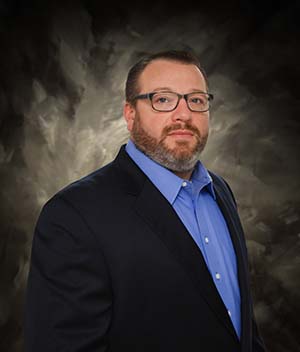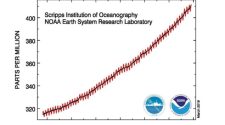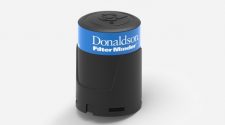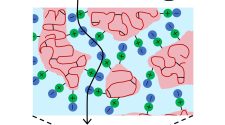Filtration Technology Corporation (FTC) was founded in 1987 to provide quality filtration and separation solutions to the oil & gas industry. The company has expanded its services and offerings to meet the needs of other fluid process markets, including industrial manufacturing, chemical production, automotive manufacturing, food & beverage, power generation, and water treatment. Today, FTC enjoys a strong reputation for developing and delivering innovative products at the forefront of filtration technology.
In this edition of IFN, we interview Tyler Johnson, President & CEO of FTC.

President & CEO
Filtration Technology Corporation
Ed Gregor: Please tell us about FTC’s filtration business in the oil and gas industry.
Tyler Johnson: FTC began with an exclusive focus on liquid-solids filtration of completion fluids. We helped increase the industry’s understanding of why proper filtration was important in the production process. We’ve since expanded our focus to include midstream and downstream, while remaining an important player in the upstream market.
Ed Gregor: What are the largest opportunities and growing needs in oil and gas?
Tyler Johnson: The oil and gas industry must respond to changing consumer behavior, changes in regulations, and new technologies that disrupt previous industry standards, all within an ever more environmentally conscious social and political environment. The industry’s response to these demands is clearly documented. You cannot pick up an oil & gas trade publication that doesn’t feature terms such as “water reuse,” “zero discharge facility,” “carbon neutral,” “carbon capture and reuse,” or “net-zero emissions,” among others. A tremendous amount of capital is being invested to develop new technology to keep pace with market expectations. Filtration and separation are crucial to making these technologies successful, and FTC is working directly with our customer base to support their success within this complex matrix of demands.
The most obvious example can be seen with the U.S. shale boom. The growth in domestic gas production has put increased pressure on water use and reuse. FTC supplies products that allow companies to optimize their operations while also meeting increasingly stringent environmental standards. Beyond production, increased shale activity has led to a focus on transportation of gas from the well head to the transportation hub and eventually to the end user. FTC has several product lines designed to remove contaminants throughout the midstream process, and we have been very successful providing these products to our midstream customers.
Ed Gregor: Does FTC specialize in any particular area of oil and gas?
Tyler Johnson: We support our oil & gas customers with a wide range of solutions for upstream, midstream, and downstream operations. However, in recent years we have greatly increased our market share in gas processing and refining. Our current oil & gas customer base is a demanding one, but we are maintaining and growing our market share in gas processing and refining through our commitment to lasting solutions.
Ed Gregor: FTC supplies to other markets as well. Please elaborate.
Tyler Johnson: You’re right. No company can do everything, but it can’t just do one thing, either. We develop products to serve a broad spectrum of general industrial filtration applications, chemical production, power generation, food and beverage, water treatment and automotive manufacturing. Although FTC was formed in Houston, Texas, at the hub of the oil & gas industry, we primarily consider ourselves to be specialists in filtration and separation. We take our understanding of the principles of filtration and separation and apply it to all the markets we serve. By combining a strong understanding of the fundamentals with a team of extremely experienced personnel at our leading R&D facility, we can offer our customers custom solutions for their unique process challenges.
Our founder, John Hampton, liked to say, “If you’re not growing, you’re dying.” With a larger facility we can now guarantee some of the shortest lead times in the industry.
Ed Gregor: FTC has been the first to market with several innovative firsts. Please tell us about a couple of them.
Tyler Johnson: Two technologies stand out. Our Platinum technology and our new Invicta technology have had the most impact on liquid-solids cartridge filtration.
The Platinum technology was developed in the 1990s. With our Platinum line, we were able to increase the amount of surface area within a filter cartridge, which increased dirt-holding capacity and consequently online life. This resulted in a lower overall cost of filtration as well as a lower overall footprint for the operator. Not only was the cartridge larger than the industry standard, but the serpentine pleat design solved the issue of unused void space in standard filter cartridges.
The idea of reducing void space was taken one step further with Invicta. Not only is effective surface area optimized, as with Platinum, but the amount of void space in the vessel is reduced significantly. Invicta offers up to 275 percent more surface area over cylindrical filters, and the design allows more elements to be placed in a vessel. The increased packing density means more surface area within the vessel. This results in lower clean pressure drop and longer life, leading to fewer changeouts and greater overall cost savings. The unique spacing pattern of Invicta also means that smaller vessels can achieve the same throughput as traditional designs, resulting in greater cost savings.
Ed Gregor: You moved into a larger facility a year ago. What did you have in mind with the move?
Tyler Johnson: Our founder, John Hampton, liked to say, “If you’re not growing, you’re dying.” With a larger facility we can now guarantee some of the shortest lead times in the industry. Most importantly, our new facility allows us to have a larger R&D capacity, to increase our engineering headcount and resources, and to quickly capitalize on opportunities for future growth.
Ed Gregor: Where do you see the best opportunities for FTC in the future?
Tyler Johnson: Our best opportunities will continue to come from innovation. Filtration and separation are becoming more and more essential as the business environment becomes more complicated. Our customers face constant pressure to provide superior products at competitive prices. Filtration can help an offshore platform, a refinery, a gas processing plant, a pipeline company, or a chemical or plastics manufacturer improve the quality of its output. With proper filtration, they can do this while reducing unnecessary wear on pipes, pumps, machinery and tanks. A product like Invicta addresses each of these concerns while simultaneously reducing the overall cost of filtration.
Ed Gregor: What appears to be the overall market trends in your larger markets?
Tyler Johnson: All our markets are driven by the need for innovation, improvement, and advancement. Each of our customers needs reliable, high efficiency, operator friendly filtration with minimal change outs, manageable consumable costs, and the smallest possible footprint. Currently, Invicta represents the latest solution for liquid-solids filtration, but even as we bring it to market we know we must be working on the next groundbreaking technology.
For further information, visit ftc-houston.com or contact John Worrell, vice president of Sales, North America at jworrell@ftc-houston.com.










